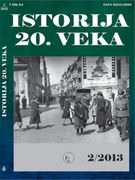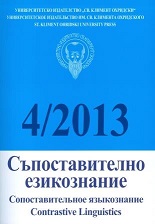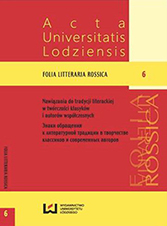
10th Anniversary Of Serbia’s Accession To The Council Of Europe 2003-2013.
O desetogodišnjici članstva Srbije u Savetu Evrope 2003-2013
The author highlights several problemsthat the Republic of Serbia (FRY, Serbia-Montenegro) has encountered on its way to permanent membership of the Council of Europe. It has had to cope with numerous barriers, in many aspects unique. The Federal Parliament adopted the Constitutional Charter of the State Union of Serbia and Montenegro on February 4th 2003, by which act the Federal Republic of Yugoslavia had ceased to exist. The Committee of Ministers invited the State Union of Serbia and Montenegro tobecome a full fledged member of the Council of Europe. The accession finally took place on April 3rd, but conditioned with a specific, unprecedented dual monitoring procedure. During the decade that followed, first Serbia-Montenegro, and from then on Republic of Serbia as the successor state, has often been forced to defend its interests concerning territorial integrity and sovereignty, while participating in the work of the CoE and its bodies. The most common issues involved Kosovo and Metohia, national minorities and religious communities rights, as well as the cooperation with the ICTY. The most important document for Serbia adopted by the PACE was a resolution calling for international and local investigations into illicit organ trafficking in Kosovo, based on a report written following a two-year investigation by Swiss rapporteur Dick Marty. Serbia chaired the Committee of Ministers for a six-month term from May to November 2007. After all the hardships ithad to endure during the first ten years of its CoE membership, the Chairmanship came as a special honour and a long awaited recognition of the commitment of the Republic of Serbia to fundamental European values, democracy, respect for human rights and the rule of law.
More...

